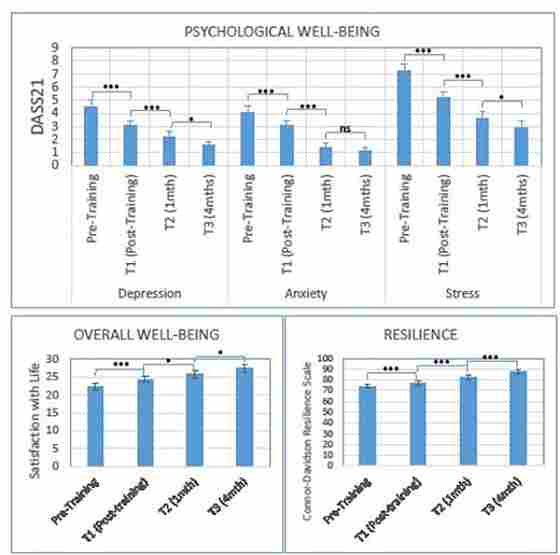Overview
Previous studies have established the efficacy of Strategic Memory Advanced Reasoning Tactics (SMART™) on higher-order cognitive functioning, yet all have been conducted in a laboratory setting carried out over the span of several weeks. This study examines the efficacy of SMART training when it is administered over a condensed time frame. The first two translational studies targeted the military/veteran population, and the third targeted law enforcement. For the military/veteran training groups, participants received between 6 and 10 hours of training, while law enforcement participants underwent 9 hours of training. Results from each of the three translational studies supported the researchers’ initial hypothesis, demonstrating that dramatically reduced training time can still produce significant gains in participants’ cognitive performance. This data suggests that the research-based, high-performance brain training that had been previously restricted to the laboratory could yield consistent results of improved cognition and self-reported symptoms of psychological health when delivered in an abbreviated format. This evidence is preliminary, however, and further exploration would be needed to understand the extent to which gains from the short-term workshop can be generalized to the various demands military/veterans and law enforcement face in the field.
Psychological health and well-being results in the first translation to military personnel and veterans show statistically significant improvements that are sustained or continuing to improve up to 4 months following learning the Strategic Memory Advanced Reasoning Tactics, or SMART™ training strategies (t-test: ***P < .0001; *P < .05; ns indicates that results were not significant).








